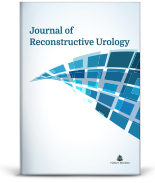Objective: ChatGPT is an artificial intelligence program with natural language processing. In this study, we aimed to evaluate the accuracy and reproducibility of ChatGPT's answers to frequently asked questions (FAQs) about urethral strictures. Material and Methods: FAQs about urethral strictures on the websites of urological associations and medical establishments were analyzed. Also, strong recommendation-level information was gathered from the urethral strictures section of the European Association of Urology (EAU) 2022 Guidelines. All questions were asked in order in ChatGPT August 3rd version. All answers were evaluated separately by two specialist urologists and scored between 1-4. Where 1: completely correct, 2: correct but insufficient, 3: combination of accurate and misleading information, and 4: completely incorrect. This study was conducted in accordance with the principles of the Declaration of Helsinki. Results: Of the FAQs, 89.5% were answered completely correctly. No question was answered completely incorrectly. All questions about general information, prevention and complications were graded as 1. Of the 45 questions prepared according to the EAU guideline recommendations, 34 (75.6%) were evaluated as Grade 1, and 5 (11.2%) and 3 (6.6%) as Grade 3 and 3 (%6.6) as Grade 4. All questions related to general information, prevention and complications received the same answer the second time they were asked. Conclusion: Our findings demonstrated that ChatGPT accurately and satisfactorily answered majority of the questions about urethral strictures. Although it has limitations, ChatGPT is predicted to have an important position in the health sector as it is a constantly evolving platform.
Keywords: Artificial intelligence; knowledge; urethral stricture
Amaç: ChatGPT, doğal dil işleme özelliğine sahip bir yapay zekâ programıdır. Bu çalışmada, üretra darlıkları hakkında sık sorulan sorulara (SSS) ChatGPT'nin verdiği yanıtların doğruluğunu ve tekrarlanabilirliğini değerlendirmeyi amaçladık. Gereç ve Yöntemler: Üroloji dernekleri ve tıbbi kuruluşların web sitelerinde üretra darlıkları hakkında SSS analiz edildi. Ayrıca Avrupa Üroloji Derneği [(EAU) 2022 Kılavuzunun üretral darlıklar bölümünden öneri düzeyinde güçlü bilgiler toplanmıştır. ChatGPT 3 Ağustos versiyonunda tüm sorular sırasıyla soruldu. Tüm cevaplar 2 uzman ürolog tarafından ayrı ayrı değerlendirilerek 1-4 arasında puanlandı. Burada 1: Tamamen doğru, 2: Doğru ama yetersiz, 3: Doğru ve yanıltıcı bilgilerin kombinasyonu ve 4: Tamamen yanlış. Bu çalışma, Helsinki Deklarasyonu prensiplerine uygun olarak yapılmıştır. Bulgular: SSS'lerin %89,5'i tamamen doğru yanıtlandı. Hiçbir soruya tamamen yanlış cevap verilmedi. Genel bilgiler, korunma ve komplikasyonlarla ilgili soruların tamamı 1 olarak derecelendirildi. EAU kılavuzunun önerileri doğrultusunda hazırlanan 45 sorudan, 34'ü (%75,6) 1. derecede değerlendirildi, 5'i (%11,2) 3. derecede ve 3'ü (%6,6) 4. derecede değerlendirildi. Genel bilgi, önleme ve komplikasyonlarla ilgili tüm sorular, ikinci kez sorulduklarında aynı cevabı aldı. Sonuç: Bulgularımız ChatGPT'nin üretral darlıklarla ilgili soruların çoğunluğunu doğru ve tatmin edici bir şekilde yanıtladığını gösterdi. ChatGPT'nin sınırlamaları olsa da sürekli gelişen bir platform olması nedeniyle sağlık sektöründe önemli bir konuma sahip olacağı öngörülüyor.
Anahtar Kelimeler: Yapay zekâ; bilgi; üretral darlık
- Holzinger A, Keiblinger K, Holub P, Zatloukal K, Müller H. AI for life: Trends in artificial intelligence for biotechnology. N Biotechnol. 2023;74:16-24. [Crossref] [PubMed]
- openai. ChatGPT: Optimizing Language Models for Dialogue. In; 2023. [Link]
- Gabriel J, Shafik L, Alanbuki A, Larner T. The utility of the ChatGPT artificial intelligence tool for patient education and enquiry in robotic radical prostatectomy. Int Urol Nephrol. 2023;55(11):2717-32. [Crossref] [PubMed]
- Da Silva RD, Leow JJ, Abidin ZA, Linden-Castro E, Castro EIB, Blanco LT, et al. Social Media in the Urology Practice | Opinion: NO. Int Braz J Urol. 2019;45(5):882-8. [Crossref] [PubMed] [PMC]
- Lawrentschuk N, Abouassaly R, Hackett N, Groll R, Fleshner NE. Health information quality on the internet in urological oncology: a multilingual longitudinal evaluation. Urology. 2009;74(5):1058-63. [Crossref] [PubMed]
- Alkaissi H, McFarlane SI. Artificial Hallucinations in ChatGPT: Implications in Scientific Writing. Cureus. 2023;15(2):e35179. [Crossref] [PubMed] [PMC]
- EAU Guidelines. Edn. presented at the EAU Annual Congress Milan 2023. ISBN 978-94-92671-19-6. 2023 [Link]
- Meskó B, Topol EJ. The imperative for regulatory oversight of large language models (or generative AI) in healthcare. NPJ Digit Med. 2023;6(1):120. Available from: [Crossref] [PubMed] [PMC]
- Li W, Fu M, Liu S, Yu H. Revolutionizing Neurosurgery with GPT-4: A Leap Forward or Ethical Conundrum? Ann Biomed Eng. 2023;51:2105-12. [Crossref] [PubMed]
- Yeo YH, Samaan JS, Ng WH, Ting PS, Trivedi H, Vipani A, et al. Assessing the performance of ChatGPT in answering questions regarding cirrhosis and hepatocellular carcinoma. Clin Mol Hepatol. 2023;29(3):721-32. [Crossref] [PubMed] [PMC]
- Larouche M, Geoffrion R, Lazare D, Clancy A, Lee T, Koenig NA, et al. Mid-urethral slings on YouTube: quality information on the internet? Int Urogynecol J. 2016;27(6):903-8. [Crossref] [PubMed]
- Rivas JG, Socarrás MR, Blanco LT. Social Media in Urology: opportunities, applications, appropriate use and new horizons. Cent European J Urol. 2016;69(3):293-8. [PubMed] [PMC]
- Zhu L, Mou W, Chen R. Can the ChatGPT and other large language models with internet-connected database solve the questions and concerns of patient with prostate cancer and help democratize medical knowledge? J Transl Med. 2023;21(1):269. [Crossref] [PubMed] [PMC]
- Routh JC, Gong EM, Cannon GM Jr, Nelson CP. Does a controversial topic affect the quality of urologic information on the Internet? Urology. 2011;78(5):1051-6. [Crossref] [PubMed]







.: Process List